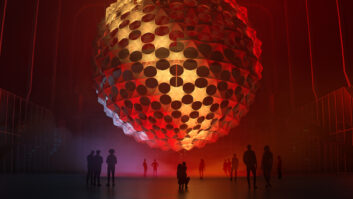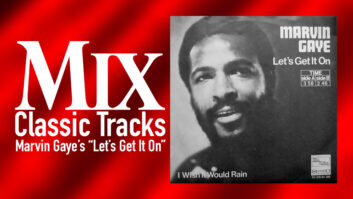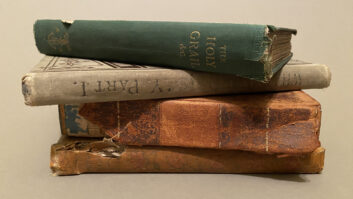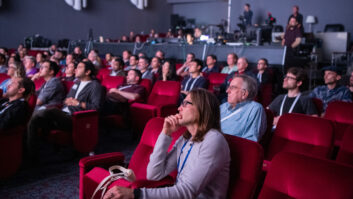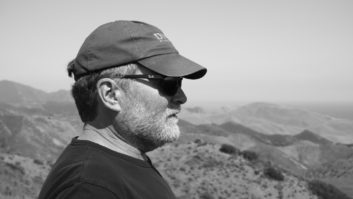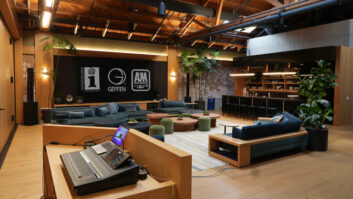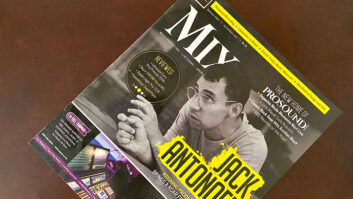Back when my younger daughter Jesse was 11 or 12, she used to love the VH1 nostalgia shows. Behind the Music, I Love the ’80s, that sort of thing. She’s a hard worker, a determined and forward-thinking young woman, and a recent UC Berkeley graduate headed to graduate school in museum studies. But back then, she used to revel in vegging out on the couch for long stretches at a time, taking a break from the sometimes crazy pressure put on teenagers today and soaking up the culture as seen through on-demand television. She still does, when she can, just like her dad.
advertisement
But back then, it was the early days of Napster, a time of transition in music consumption, and she had been raised on CD playback of the Kinks, Zeppelin, The Beatles, Dylan, and a bit of Rickie Lee Jones, right along with Destiny’s Child, Spice Girls, N’Sync and Backstreet Boys. One lazy, rainy Saturday, as I passed through the living room with her on the couch and I Love the ’70s on the pre-LCD TV, she turned to me and said, “Dad, you’re so lucky. You got to grow up in the ’70s and now.”
I tell that story a lot. As those close to me might attest, I tend to repeat myself. But I tell it here because she was so right, but for reasons she might not have imagined. I’ve been thinking a lot about The Golden Age of Music, The Golden Age of Recording, the mid-’60s to late-’70s. For many years I felt like an old man on a rocking chair telling anyone who would listen, “When I was young…” Maybe I was the kind of dad whose children would roll their eyes when their friends came over.
But I’m not that dad. I treasure my roots, I recognize their importance, but I do my best to live in the present and embrace today’s culture, today’s technology and today’s music. I feel that I was confirmed and validated of that in recent conversations with this month’s cover boys, red-hot producer/songwriter Alex da Kid and red-hot mixer Manny Marroquin of Larrabee Studios, one of the hottest commercial facilities on the planet.
Alex da Kid is often portrayed as a laptop guy with penchant for rhythm and a Nose for the Now. But as a newbie/student, he interned/assisted for years at Metropolis Studios, one of the great facilities in London, where he spent off-hours, in the middle of the night, experimenting with sounds anywhere and everywhere he could create them. Analog or digital, it didn’t matter. He loved drums, and he loved rhythm, and he spent countless hours experimenting in the studio, dropping objects on the floor and recording the moments, seeing what he could get out of medieval percussion, playing with analog effects. He stored all those root sounds to gigabytes of hard drives and today uses them (often heavily digitally processed) as the foundation for nearly all of his worked-up demos. Look him up. He has more than a few hits.
Marroquin, meanwhile, studied music at a relatively prestigious high school for the arts in Los Angeles, and then took a job as a runner at Enterprise Studios, working his way up the old-school way. Trained on SSLs, reaching for a Fairchild, learning from the masters, finding a home at Larrabee, and now at the top of his game. He’s had hits with Dr. Dre, Eminem, Christina Aguilera, Imagine Dragons, Bruno Mars, Usher, Rihanna, Mariah Carey, Kanye, Katy Perry, John Mayer, Miguel and countless others. Recently he released a highly popular plug-in collection through Waves.
There are no rules. Modern workflows and sheer processing power have progressed to the point that there is no analog vs. digital debate anymore. Whatever tool suits the song, that’s the tool to use. If you love music and you love technology, it’s a great time to be alive. Jesse was right. I am lucky. I got to grow up in the ’70s and now. I wouldn’t trade it for anything.
Tom Kenny
Editor
